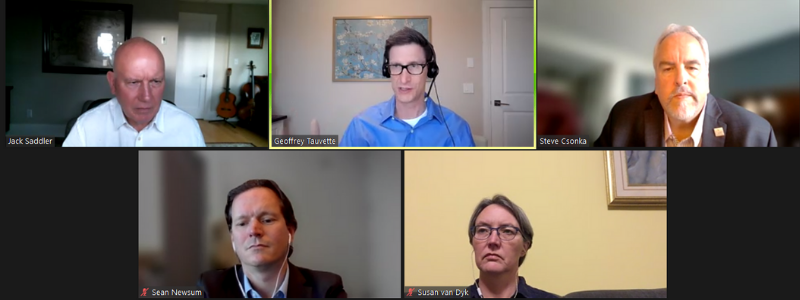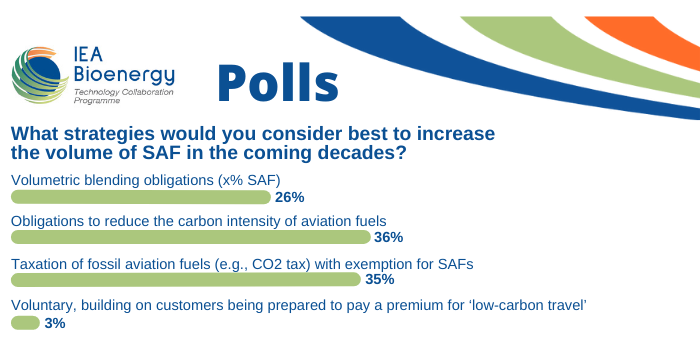There is increasing recognition that drop-in biofuels will play an essential role in decarbonizing the long-distance transportation sector, particularly aviation and marine.
Although increasing (green) electrification is anticipated to decarbonise urban road transport, the current fuel and engine infrastructure combined with the long lifespan of aircraft and maritime vessels predisposes them to using low carbon-intensive, drop in biofuels.
This session discussed the role that drop-in biofuels will play and how technology maturation and, most importantly, enabling policies, will play in facilitating the production and use of low carbon intensive drop-in biofuels.
Moderator
Jack Saddler, Professor of Bioenergy/Biofuels, Faculty of Forestry, University of British Columbia (UBC), Canada
Presentations
Boeing’s progress and support of decarbonising aviation ![]()
Sean Newsum, Director of Environmental Strategy, Boeing, United States
Progress in the production and use of biojet/SAF globally and in the US ![]()
Steve Csonka, Executive Director, Commercial Aviation Alternative Fuels Initiative (CAAFI), United States
The development of C-SAF and progress in establishing a Canadian biojet/SAF supply chain ![]()
Geoff Tauvette, Vice President, Operations and Sustainability, FSM Management Group Inc., Canada
Progress in the commercialization of biojet/SAF: technologies, potential and challenges ![]()
Susan van Dyk, Scientist and Independent Researcher in Biofuels, Bioenergy and Renewable energy, University of British Columbia (UBC), Canada

Highilights
- In October 2021, the Air Transport Action Group (ATAG) announced its mission to achieve net zero carbon emissions by 2050 for global civil aviation operations (up from the earlier target to reduce GHG emissions by 50% by 2050). Next to efficiency improvements, Sustainable Aviation Fuels (SAF) will be the immediate and primary focus to decarbonize aviation. Medium and long-haul aviation requires hydrocarbon fuel, also at the longer term. Estimated required volumes of SAF range between 330 and 450 million tonnes per year by 2050.
- There are several SAF pathways: HEFA, produced from fats, oils and greases, is fully commercial and will continue to be the biggest supplier of SAF for the next 10 years at least. Alcohol-to-jet and Fischer-Tropsch jetfuel could follow, as well as co-processed biocrude in refineries and fuels produced through pyrolysis/hydrothermal liquefaction technologies. On the longer term (2040+) power-to-liquid jetfuels are expected to play an increasing role, based on renewable electricity and captured CO2.
- Most SAF are currently limited to 50% blending for technical reasons (particularly lack of aromatics). Nevertheless 100% SAF has already been demonstrated in some flights, and producers like Boeing commit that from 2030 new airplanes will be compatible with 100% SAF.
- The main challenge is achieving production at reasonable cost. SAF will always remain more expensive than fossil jetfuel, so its use needs to be enabled by policies and sector commitments. Policies could either provide incentives (see Californian LCFS), either impose mandates (see proposed ReFuelEU in Europe). Carbon pricing is also an important tool. Voluntary actions, e.g. buyers alliances, can also create demand at the short term to reduce the carbon footprint of these businesses. This can go through book and claim systems, with provisions to avoid double counting.
- A lot is moving in aviation markets and announced intentions for SAF production would represent 3% of commercial jetfuel supply within 5 years. Commercial agreements are being pursued, fostered by policy and other unique approaches. Airline and fuel consortia are working together to build solutions for aviation fuel supply and logistics challenges, for example in Canada.

Recording


